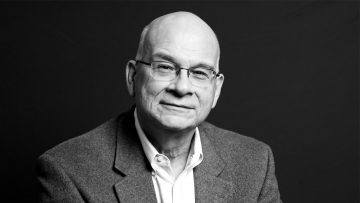Peter Wehner in The Atlantic:
 Shortly after I met my wife, Cindy, in 1989—she was living in New York City at the time, while I was living in Northern Virginia—she told me about a new church she was attending in Manhattan: Redeemer Presbyterian. The young minister, she told me, was “the best pastor in America.” His name was Timothy J. Keller. Since that time Keller, 69, has become one of the most consequential figures in American Christianity. When he founded Redeemer in the fall of 1989, fewer than 100 people attended; in the aftermath of the attacks on September 11, 2001, Keller was preaching in multiple services in three different venues each Sunday to about 5,000 people—mostly young, single, professionally and ethnically diverse. He has written about two dozen books, several of them best sellers. And unlike that of many popular ministers, his reach extends far beyond the Christian subculture.
Shortly after I met my wife, Cindy, in 1989—she was living in New York City at the time, while I was living in Northern Virginia—she told me about a new church she was attending in Manhattan: Redeemer Presbyterian. The young minister, she told me, was “the best pastor in America.” His name was Timothy J. Keller. Since that time Keller, 69, has become one of the most consequential figures in American Christianity. When he founded Redeemer in the fall of 1989, fewer than 100 people attended; in the aftermath of the attacks on September 11, 2001, Keller was preaching in multiple services in three different venues each Sunday to about 5,000 people—mostly young, single, professionally and ethnically diverse. He has written about two dozen books, several of them best sellers. And unlike that of many popular ministers, his reach extends far beyond the Christian subculture.
…I probed Keller on the challenge to faith posed by theodicy. Channeling David Hume in Dialogues Concerning Natural Religion, how does Keller explain why an all-good, all-loving, and all-powerful God allows for the existence of evil and suffering in the world? It’s a question to which I have long thought Christian philosophers (and nonphilosophers) offer at best an incomplete response. (I’ve made my own inadequate efforts to wrestle with this issue as a Christian.) Keller, who was an associate practical-theology professor at Westminster Theological Seminary before founding Redeemer Presbyterian, answered in two parts. On the pastoral side, he said that the wrong answer, especially for a person who has experienced suffering or grief, is: “Don’t question; God has his reasons.” The whole Book of Job is a testimony to the Bible’s invitation to us to struggle and cry out in suffering, Keller told me. “After Job does this for 40 chapters, God vindicates him,” he said. “This is no call to stoicism or ‘Don’t question.’” Job is “a book showing [that] God is patient with us in suffering and always present even when he seems absent.”
More here.
